Lipid Profile
How to submit an article:
- Registered users can submit any published journal article that has a unique DOI (Digital Object Identifier) name or link to Research Hub.
- For example, you can paste the full DOI link:
https://doi.org/10.1109/5.771073or just the DOI name:10.1109/5.771073into the field above and click submit. - The person who is first to submit a valid article to Research Hub will forever be credited for it, and every article submission earns you +6 Research Points.
Related Topics
Published research studies are articles that present the findings of original research that has undergone a peer-review process and has been made publicly available in scholarly journals, books or other media.
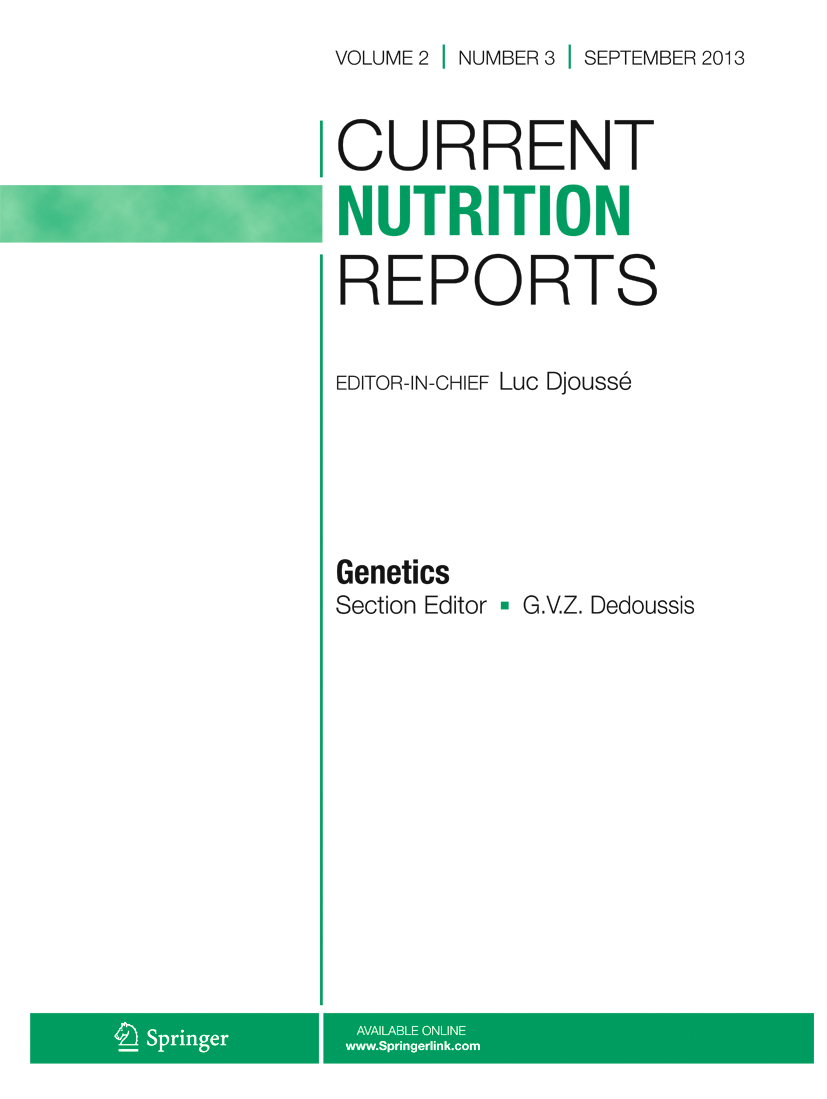
Ziziphus jujuba (Jujube) in Metabolic Syndrome: From Traditional Medicine to Scientific Validation
2024 Oct 01 Current Nutrition Reports Ghasemzadeh Rahbardar M, Fazeli Kakhki H, Hosseinzadeh H
Review Article Obesity Type 2 Diabetes Metabolic Syndrome High Blood Pressure JujubeZiziphus jujuba and its main components, lupeol and betulinic acid, show promise in treating complications of metabolic syndrome, including diabetes, obesity, and hypertension.
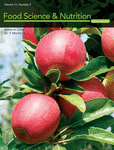
The effects of plum products consumption on lipid profile in adults: A systematic review and dose–response meta‐analysis
2024 Feb 25 Food Science & Nutrition Heydarian A, Tahvilian N, Asbaghi O, Cheshmeh S, Nadery M, Aryaeian N
Systematic Review Cholesterol LDL PlumEating plums, especially dried plums, significantly lowers LDL levels and total cholesterol levels, particularly in adults with existing health issues.

Anti-Menopausal Effect of Soybean Germ Extract and Lactobacillus gasseri in the Ovariectomized Rat Model
2023 Oct 23 Nutrients Lee SH, Lim TJ, Yun EJ, Kim KH, Lim S
Animal Study Experimental Study Menopause Soybean BacillusA combination of soybean germ extract and a probiotic significantly improved menopause-related conditions and mood in an ovariectomized rat model.

The effects of pomegranate consumption on lipid profile in adults: A systematic review and meta-analysis
2023 Sep Journal of Functional Foods Bahari H, Rezaiian F, Goudarzi K, Nooshan Mirmohammadali S, Asbaghi O, sadat Hosseini kolbadi K, et al.
Systematic Review Meta-Analysis Cholesterol Triglyceride PomegranatePomegranate consumption positively affects triglycerides, low-density lipoprotein cholesterol, and high-density lipoprotein cholesterol levels.
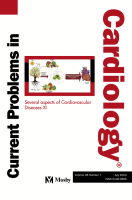
Effect of Oat (Avena sativa L.) Consumption on Lipid Profile With Focus on Triglycerides and High-density Lipoprotein Cholesterol (HDL-C): An Updated Systematic Review
2023 Jul Current Problems in Cardiology Amerizadeh A, Ghaheh HS, Vaseghi G, Farajzadegan Z, Asgary S
Systematic Review Triglyceride Cholesterol HDL-C OatsOat consumption can significantly improve lipid profiles, particularly reducing total cholesterol and LDL cholesterol, with potential positive effects on triglycerides and HDL cholesterol under certain conditions.
Research insights are moderated by the Research Hub team and offer an at-a-glance overview of interesting research findings.

2024 Current Nutrition Reports
Ziziphus jujuba and its main components, lupeol and betulinic acid, show promise in treating complications of metabolic syndrome, including diabetes, obesity, and hypertension.
Review Article High Blood Pressure Jujube Metabolic Syndrome Obesity Type 2 Diabetes
Ziziphus jujuba (Jujube) in Metabolic Syndrome: From Traditional Medicine to Scientific Validation
Ghasemzadeh Rahbardar M, Fazeli Kakhki H, Hosseinzadeh H

2024 Food Science & Nutrition
Eating plums, especially dried plums, significantly lowers LDL levels and total cholesterol levels, particularly in adults with existing health issues.
Systematic Review Cholesterol LDL Plum
The effects of plum products consumption on lipid profile in adults: A systematic review and dose–response meta‐analysis
Heydarian A, Tahvilian N, Asbaghi O, Cheshmeh S, Nadery M, Aryaeian N

2023 Nutrients
A combination of soybean germ extract and a probiotic significantly improved menopause-related conditions and mood in an ovariectomized rat model.
Animal Study Bacillus Menopause Soybean
Anti-Menopausal Effect of Soybean Germ Extract and Lactobacillus gasseri in the Ovariectomized Rat Model
Lee SH, Lim TJ, Yun EJ, Kim KH, Lim S

2023 Journal of Functional Foods
Pomegranate consumption positively affects triglycerides, low-density lipoprotein cholesterol, and high-density lipoprotein cholesterol levels.
Systematic Review Cholesterol Pomegranate Triglyceride
The effects of pomegranate consumption on lipid profile in adults: A systematic review and meta-analysis
Bahari H, Rezaiian F, Goudarzi K, Nooshan Mirmohammadali S, Asbaghi O, sadat Hosseini kolbadi K, et al.

2023 Current Problems in Cardiology
Oat consumption can significantly improve lipid profiles, particularly reducing total cholesterol and LDL cholesterol, with potential positive effects on triglycerides and HDL cholesterol under certain conditions.
Systematic Review Cholesterol HDL-C Oats Triglyceride
Effect of Oat (Avena sativa L.) Consumption on Lipid Profile With Focus on Triglycerides and High-density Lipoprotein Cholesterol (HDL-C): An Updated Systematic Review
Amerizadeh A, Ghaheh HS, Vaseghi G, Farajzadegan Z, Asgary S
Review Articles
Review articles summarise and critically evaluate the current state of research on a specific topic or field by synthesising multiple primary research studies.

Ziziphus jujuba (Jujube) in Metabolic Syndrome: From Traditional Medicine to Scientific Validation
2024 Oct 01 Current Nutrition Reports Ghasemzadeh Rahbardar M, Fazeli Kakhki H, Hosseinzadeh H
Review Article Obesity Type 2 Diabetes Metabolic Syndrome High Blood Pressure JujubeZiziphus jujuba and its main components, lupeol and betulinic acid, show promise in treating complications of metabolic syndrome, including diabetes, obesity, and hypertension.

The effects of plum products consumption on lipid profile in adults: A systematic review and dose–response meta‐analysis
2024 Feb 25 Food Science & Nutrition Heydarian A, Tahvilian N, Asbaghi O, Cheshmeh S, Nadery M, Aryaeian N
Systematic Review Cholesterol LDL PlumEating plums, especially dried plums, significantly lowers LDL levels and total cholesterol levels, particularly in adults with existing health issues.

The effects of pomegranate consumption on lipid profile in adults: A systematic review and meta-analysis
2023 Sep Journal of Functional Foods Bahari H, Rezaiian F, Goudarzi K, Nooshan Mirmohammadali S, Asbaghi O, sadat Hosseini kolbadi K, et al.
Systematic Review Meta-Analysis Cholesterol Triglyceride PomegranatePomegranate consumption positively affects triglycerides, low-density lipoprotein cholesterol, and high-density lipoprotein cholesterol levels.

Effect of Oat (Avena sativa L.) Consumption on Lipid Profile With Focus on Triglycerides and High-density Lipoprotein Cholesterol (HDL-C): An Updated Systematic Review
2023 Jul Current Problems in Cardiology Amerizadeh A, Ghaheh HS, Vaseghi G, Farajzadegan Z, Asgary S
Systematic Review Triglyceride Cholesterol HDL-C OatsOat consumption can significantly improve lipid profiles, particularly reducing total cholesterol and LDL cholesterol, with potential positive effects on triglycerides and HDL cholesterol under certain conditions.

Impact of Oats on Appetite Hormones and Body Weight Management: A Review
2023 Feb 15 Current Nutrition Reports Shehzad A, Rabail R, Munir S, Jan H, Fernández-Lázaro D, Aadil RM
Review Article Obesity Appetite OatsOats, in various edible forms, can regulate appetite hormones, aid weight management, strengthen the immune system, and contribute to gut health, making them effective for obesity management.
Clinical Trials
Clinical trials are research studies that involve people and are conducted to evaluate the safety and efficacy of new treatments or interventions, such as drugs, medical devices, or behavioural therapies.

Effects of crocin supplementation on inflammatory markers, lipid profiles, insulin and cardioprotective indices in women with PCOS: A randomized, double‐blind, placebo‐controlled trial
2022 Apr 26 Phytotherapy Research Rahimi G, Shams S, Aslani MR
Crocin intervention (15 mg, twice daily) significantly increased high-density lipoprotein cholesterol, suppressed the increase in low-density lipoprotein cholesterol, triglycerides, and total cholesterol levels, and improved insulin and cardioprotective indices in women with PCOS. Additionally, crocin demonstrated protective effects against the increase in inflammatory markers (IL-6 and TNF-α) observed in the placebo group. The findings suggest that crocin supplementation may be beneficial in the therapeutic management of PCOS.
Clinical Study Randomised Controlled Trial PCOS Crocin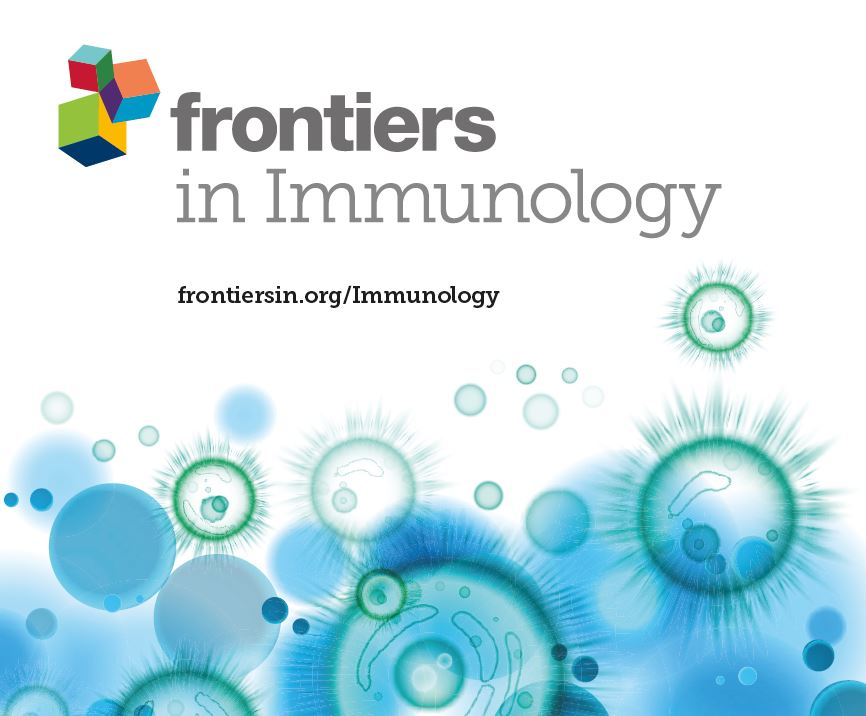
The Prebiotic Effects of Oats on Blood Lipids, Gut Microbiota, and Short-Chain Fatty Acids in Mildly Hypercholesterolemic Subjects Compared With Rice: A Randomized, Controlled Trial
2021 Dec 09 Frontiers in Immunology Xu D, Feng M, Chu YF, Wang S, Shete V, Tuohy KM, et al.
Experimental Study Randomised Controlled Trial Oats Cholesterol Gut MicrobiotaConsuming oats significantly lessens total and LDL cholesterol levels and mediates a prebiotic effect on the gut microbiome, contributing to its cholesterol-lowering ability.
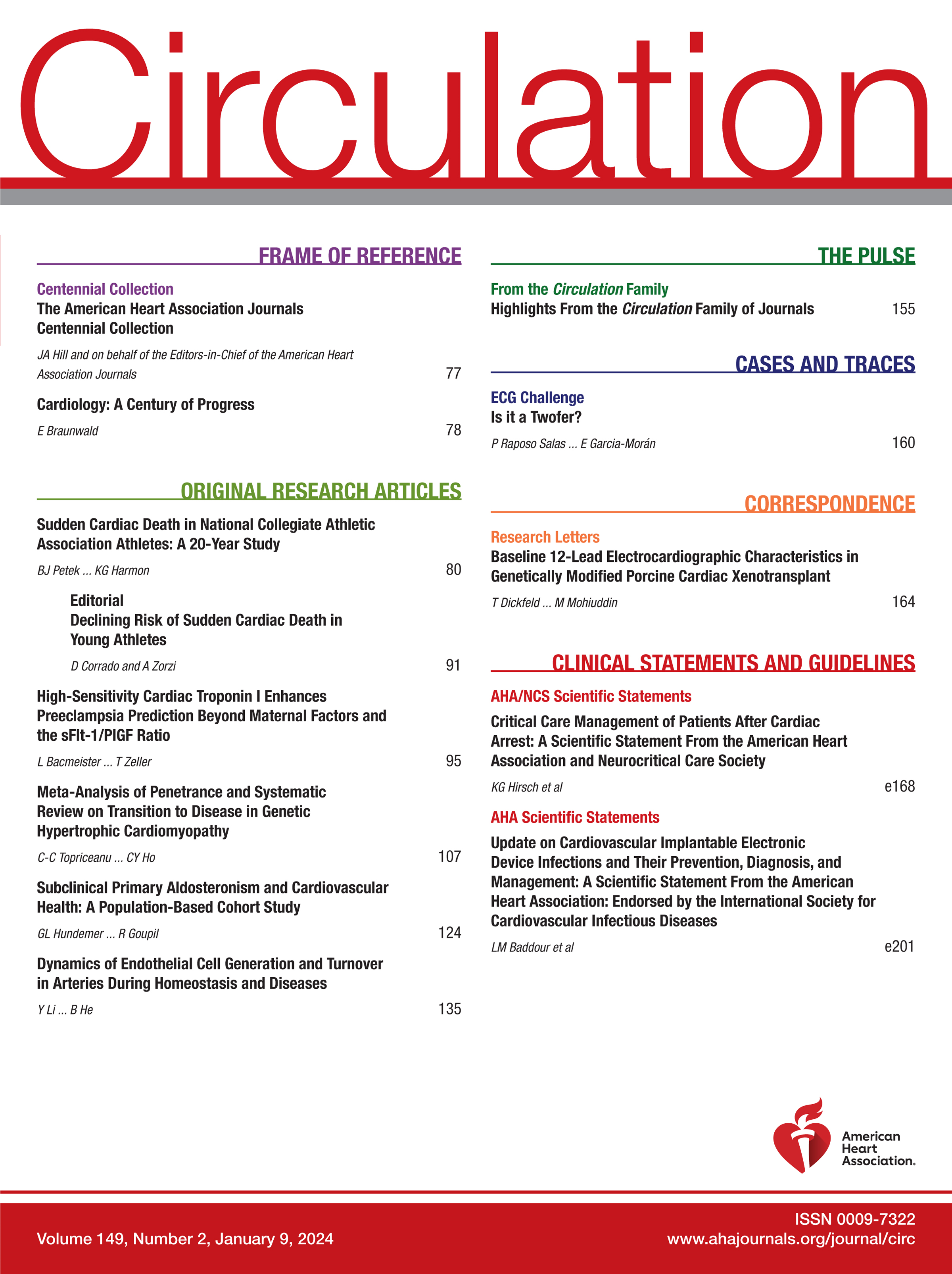
Effects of Walnut Consumption for 2 Years on Lipoprotein Subclasses Among Healthy Elders
2021 Sep 28 Circulation Rajaram S, Cofán M, Sala-Vila A, Haddad E, Serra-Mir M, Bitok E, et al.
Randomised Controlled Trial Cholesterol Walnut LDL
Moderate Consumption of Beer (with and without Ethanol) and Menopausal Symptoms: Results from a Parallel Clinical Trial in Postmenopausal Women
2021 Jun 30 Nutrients Trius-Soler M, Marhuenda-Muñoz M, Laveriano-Santos EP, Martínez-Huélamo M, Sasot G, Storniolo CE, et al.
Randomised Controlled Trial Cardiovascular Disease Menopause BeerModerate daily consumption of beer, both with and without alcohol, can significantly alleviate menopause-related symptoms and improve cardiovascular health in postmenopausal women.
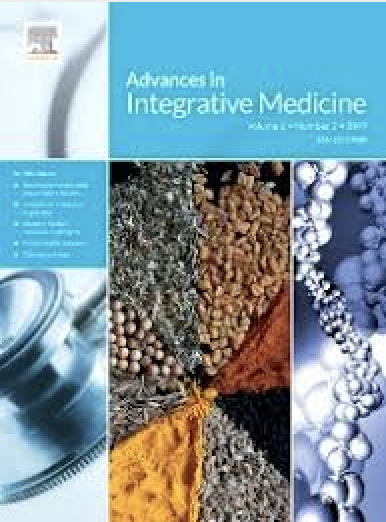
Effects of pomegranate (Punica granatum L.) peel extract supplementation on serum lipid profile and oxidative stress in obese women with knee osteoarthritis: A double blind, randomized, placebo controlled study
2021 May Advances in Integrative Medicine Haghighian MK, Rafraf M, Hemmati S, Haghravan S, Asghari-Jafarabadi M
Randomised Controlled Trial Knee Osteoarthritis Pomegranate PeelPomegranate peel extract supplementation can decrease total cholesterol and triglyceride levels while boosting antioxidant status in obese women with knee osteoarthritis.
Study Protocols
Published study protocols are detailed plans that outline the objectives, methodology, statistical analyses, and organisation of a research study that have been made publicly available for others to review and use as a reference.
Presentation Slides

Review Article
Ziziphus jujuba and its main components, lupeol and betulinic acid, show promise in treating complications of metabolic syndrome, including diabetes, obesity, and hypertension.
Ghasemzadeh Rahbardar M, Fazeli Kakhki H, Hosseinzadeh H

Systematic Review
Eating plums, especially dried plums, significantly lowers LDL levels and total cholesterol levels, particularly in adults with existing health issues.
Heydarian A, Tahvilian N, Asbaghi O, Cheshmeh S, Nadery M, Aryaeian N

Animal Study
A combination of soybean germ extract and a probiotic significantly improved menopause-related conditions and mood in an ovariectomized rat model.
Lee SH, Lim TJ, Yun EJ, Kim KH, Lim S

Systematic Review
Pomegranate consumption positively affects triglycerides, low-density lipoprotein cholesterol, and high-density lipoprotein cholesterol levels.
Bahari H, Rezaiian F, Goudarzi K, Nooshan Mirmohammadali S, Asbaghi O, sadat Hosseini kolbadi K, Naderian M, Hosseini A

Systematic Review
Oat consumption can significantly improve lipid profiles, particularly reducing total cholesterol and LDL cholesterol, with potential positive effects on triglycerides and HDL cholesterol under certain conditions.
Amerizadeh A, Ghaheh HS, Vaseghi G, Farajzadegan Z, Asgary S
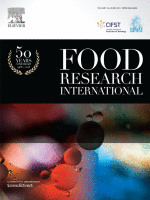
Animal Study
Fermented soy milk significantly improves lipid profiles and fertility in a model of premenopausal mice, due to increased bioavailability and action of beneficial compounds.
Ruiz de la Bastida A, Langa S, Peirotén , Fernández-Gonzalez R, Sánchez-Jiménez A, Maroto M, Antonio Curiel J, Guillamon E, Arqués JL, Gutiérrez-Adán A, Landete JM

Review Article
Oats, in various edible forms, can regulate appetite hormones, aid weight management, strengthen the immune system, and contribute to gut health, making them effective for obesity management.
Shehzad A, Rabail R, Munir S, Jan H, Fernández-Lázaro D, Aadil RM

Experimental Study
Consuming oats significantly lessens total and LDL cholesterol levels and mediates a prebiotic effect on the gut microbiome, contributing to its cholesterol-lowering ability.
Xu D, Feng M, Chu YF, Wang S, Shete V, Tuohy KM, Liu F, Zhou X, Kamil A, Pan D, Liu H, Yang X, Yang C, Zhu B, Lv N, Xiong Q, Wang X, Sun J, Sun G, Yang Y

Systematic Review
Chocolate and cocoa product consumption significantly improved lipid profiles, but had no significant effect on other heath aspects such as cognitive function and blood pressure.
Tan TYC, Lim XY, Yeo JHH, Lee SWH, Lai NM

Randomised Controlled Trial
Moderate daily consumption of beer, both with and without alcohol, can significantly alleviate menopause-related symptoms and improve cardiovascular health in postmenopausal women.
Trius-Soler M, Marhuenda-Muñoz M, Laveriano-Santos EP, Martínez-Huélamo M, Sasot G, Storniolo CE, Estruch R, Lamuela-Raventós RM, Tresserra-Rimbau A

Systematic Review
Apple cider vinegar intake can significantly decrease total cholesterol and fasting plasma glucose levels contributing to better cardiovascular health among adults.
Hadi A, Pourmasoumi M, Najafgholizadeh A, Clark CCT, Esmaillzadeh A

Systematic Review
The consumption of cocoa or dark chocolate can reduce low-density lipoprotein cholesterol and fasting blood sugar levels in diabetic patients.
Darand M, Hajizadeh Oghaz M, Hadi A, Atefi M, Amani R

Randomised Controlled Trial
Pomegranate peel extract supplementation can decrease total cholesterol and triglyceride levels while boosting antioxidant status in obese women with knee osteoarthritis.
Haghighian MK, Rafraf M, Hemmati S, Haghravan S, Asghari-Jafarabadi M

Systematic Review
Acupuncture could improve body mass index, waist-to-hip ratio as well as insulin resistance (HOMA-IR) in patients with PCOS.
Ruqun Zheng, Peng Qing, Mei Han, Jinlong Song, Min Hu, Hongxia Ma, Juan Li

Experimental Study
Extra virgin olive oil high in minor polar compounds significantly improves kidney function, reduces oxidative stress, inflammation, and ultimately benefits the body composition.
Noce A, Marrone G, Urciuoli S, Di Daniele F, Di Lauro M, Pietroboni Zaitseva A, Di Daniele N, Romani A
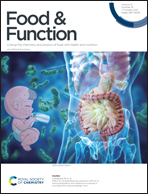
Systematic Review
Almond intake significantly changed the concentrations of triglycerides, total cholesterol and low-density lipoproteins
Asbaghi O, Moodi V, Hadi A, Eslampour E, Shirinbakhshmasoleh M, Ghaedi E, Miraghajani M
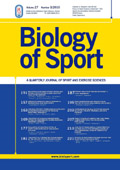
Randomised Controlled Trial
Walnut consumption coupled with concurrent training improves lipid profile, steroid hormone levels, and systematic inflammation in elderly men.
Kamoun A, Hammouda O, Turki M, Maaloul R, Chtourou M, Bouaziz M, Driss T, Souissi N, Chamari K, Ayadi F
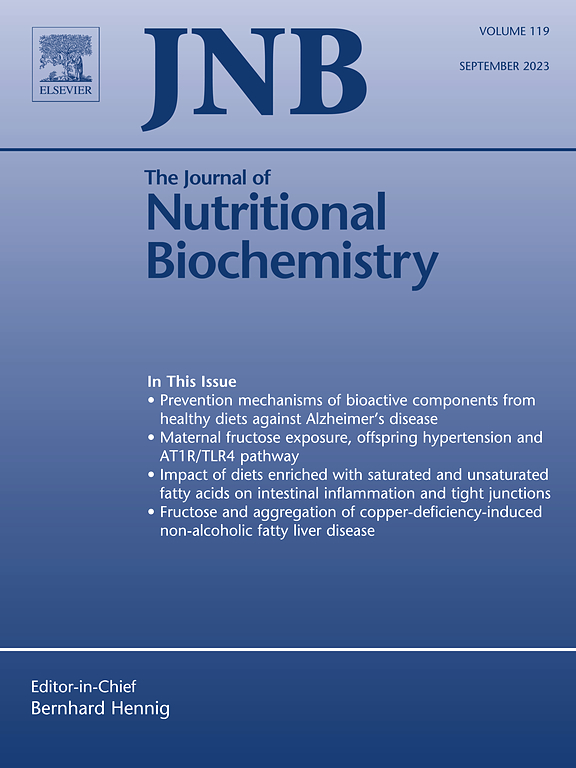
Review Article
Honey, with its variable composition based on botanical origin, exhibits antioxidant and anti-inflammatory properties, suggesting its potential efficacy in managing obesity-related dysfunctions, including neurodegeneration, through improved glycemic control and lipid profile.
Terzo S, Mulè F, Amato A
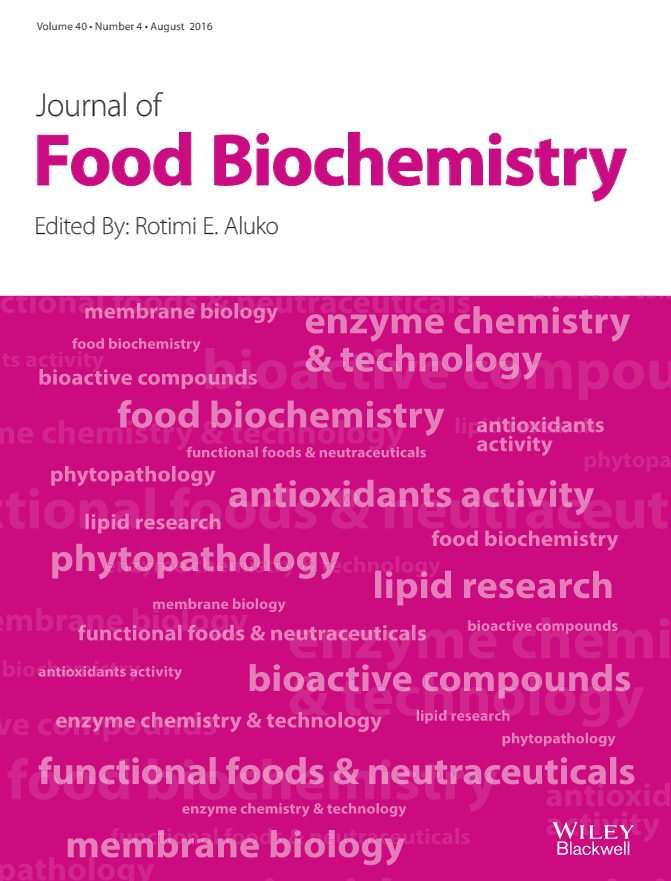
Systematic Review
Cinnamon supplementation contributes to the improvement of insulin resistance in patients with PCOS.
Javad Heshmati, Mahdi Sepidarkish, Mojgan Morvaridzadeh, Farnaz Farsi, Nishant Tripathi, Maryam Razavi, Mahroo Rezaeinejad
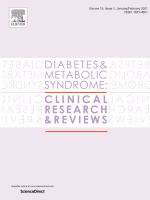
Systematic Review
Green tea extract supplement intake reduces serum triglyceride and total cholesterol in patients with type 2 diabetes mellitus, especially when used long term.
Asbaghi O, Fouladvand F, Moradi S, Ashtary-Larky D, Choghakhori R, Abbasnezhad A

Systematic Review
Fenugreek supplementation could be considered as an effective lipid-lowering medicinal plant.
Kiyan Heshmat-Ghahdarijani,Neda Mashayekhiasl,Atefeh Amerizadeh,Zahra Teimouri Jervekani,Masoumeh Sadeghi,

Randomised Controlled Trial
Daily intake of 3 grams of oat beta-glucans significantly reduces LDL-Cholesterol, Total Cholesterol, and non-HDL-Cholesterol levels without impacting intestinal well-being or glucose levels.
Cicero AFG, Fogacci F, Veronesi M, Strocchi E, Grandi E, Rizzoli E, Poli A, Marangoni F, Borghi C

Systematic Review
Ginger supplementation has a favorable effect on levels of triacylglycerol and low-density lipoprotein cholesterol, especially in doses of 2 grams or less per day.
Pourmasoumi M, Hadi A, Rafie N, Najafgholizadeh A, Mohammadi H, Rouhani MH

Systematic Review
Of the 7 clinical trials included, five evaluating individuals with hypertension observed a significant reduction in systolic and/or diastolic blood pressure. The two articles that evaluated individuals with dyslipidemia showed improvement in lipid profile.
Carolina Alves Cardoso, Gláucia Maria Moraes de Oliveira, Luciana de Almeida Vittori Gouveia, Annie Seixas Bello Moreira & Glorimar Rosa
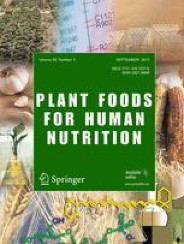
Randomised Controlled Trial
Pomegranate juice intake can reduce systolic and diastolic blood pressure and inflammation markers, but may increase triglyceride and very low-density lipoprotein cholesterol levels.
Moazzen H, Alizadeh M
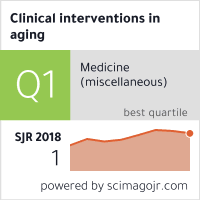
Randomised Controlled Trial
Daily consumption of Puer tea extract results in significant weight loss, reduced body fat, and improved lipid profile in a non-Asian overweight population.
Jensen GS, Beaman JL, He Y, Guo Z, Sun H.

Clinical Study
Pomegranate juice intake for two weeks significantly reduces blood pressure and may improve heart health by lowering vascular endothelial adhesion molecule-1 levels.
Asgary S, Sahebkar A, Afshani MR, Keshvari M, Haghjooyjavanmard S, Rafieian‐Kopaei M
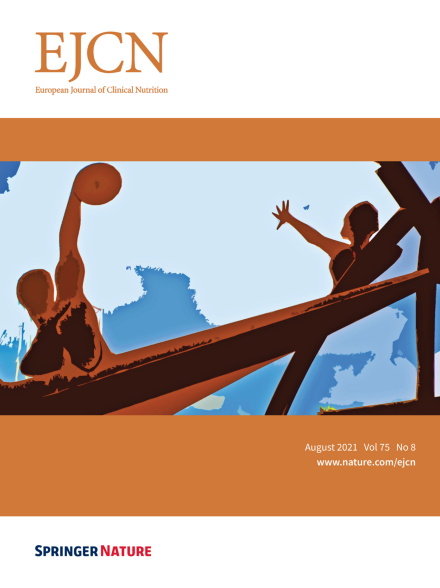
Meta-Analysis
Consumption of dark chocolate and cocoa products has been shown to significantly reduce serum levels of low-density lipoprotein (LDL) and total cholesterol (TC), indicating potential cardiovascular benefits.
Tokede OA, Gaziano JM, Djoussé L
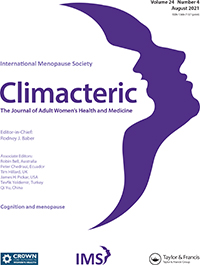
Randomised Controlled Trial
Pumpkin seed oil supplementation may increase good cholesterol levels, lower diastolic blood pressure, and alleviate menopausal symptoms in postmenopausal women.
Gossell-Williams M, Hyde C, Hunter T, Simms-Stewart D, Fletcher H, McGrowder D, Walters CA
Executive Summary
Write an executive summary in the form of a blog article on the topic of "Research into Chinese medicine treatment for Lipid Profile" summarising the research below and using language that can be easily understood by patients and avoiding medical jargon using a professional and caring tone of voice.
Write an executive summary in the form of a blog article on the topic of "Researched Chinese medicine treatments for Lipid Profile" summarising the research below in an objective and easy to understand way, and using language that can be easily understood by patients. Group the article into Chinese medicine treatments first, followed by nutrition and other treatments. Avoid using medical jargon and use a professional and caring tone of voice.
Write me a concise but easy to understand executive summary on the topic of "Chinese medicine treatments for Lipid Profile" based on the following research that I will give you. Your summary should be 2 paragraphs long in Australian English spelling and include references to the studies.
A Review Article published in 2024 in the journal Current Nutrition Reports found that Ziziphus jujuba and its main components, lupeol and betulinic acid, show promise in treating complications of metabolic syndrome, including diabetes, obesity, and hypertension. The research assessed the properties of Ziziphus jujuba and its main bioactive agents, lupeol and betulinic acid, in relation to metabolic syndrome. Investigations focussed on their potential roles in glucose uptake enhancement, hepatic glucose synthesis reduction, insulin sensitivity improvement, and lipid profile modulation. Studies involved identifying the influence of these substances on key signaling pathways and insulin signaling proteins, as well as evaluating their anti-adipogenic effects and capacity to improve endothelial function. Ziziphus jujuba and its constituents exhibited potential therapeutic benefits for metabolic syndrome by facilitating glucose uptake, reducing glucose synthesis, and improving insulin sensitivity. They also showed potential in moderating lipid synthesis and fat accumulation, demonstrating anti-fatty effects and a capacity to influence adipogenic enzymes and transcription factors. Moreover, these substances demonstrated enhanced endothelial function, reflecting positively on vascular health. These accumulative findings suggest promising potential for Z. jujuba, lupeol, and betulinic acid as natural treatments for metabolic syndrome complications.
A Systematic Review published in 2024 in the journal Food Science & Nutrition found that Eating plums, especially dried plums, significantly lowers LDL levels and total cholesterol levels, particularly in adults with existing health issues. The researchers conducted a systematic review and meta-analysis using keyword searches on databases such as PubMed, Scopus, and ISI Web of Science up to a specified date. They were on a mission to find eligible trials that would help ascertain the benefits of plum consumption on adult lipid profiles. In their observation of the collected data, they concluded that plum, specifically dried plum consumption, had a noteworthy impact on LDL levels, mainly when the subjects were in an unhealthy state. This consumption led to a significant decrease in total cholesterol levels in the unhealthy subjects. Nevertheless, the study couldn't establish major changes in triglycerides and HDL concentrations as a result of the plum consumption.
A Animal Study published in 2023 in the journal Nutrients found that A combination of soybean germ extract and a probiotic significantly improved menopause-related conditions and mood in an ovariectomized rat model. The study employed an ovariectomized rat model to understand the effects of a combination of soybean germ extract containing 30% isoflavone and a probiotic. The methodology included assessing the effects of this combination on several health markers including body weight, estrogen markers, uterine and bone health, vascular markers, and neurotransmitter levels in these rats. Once implemented, the combination of soybean germ extract and the probiotic showcased significant improvement in body weight and uterine and bone health of the rats. There were also noticeable effects on the lipid profile, liver function, and vascular markers. Most interestingly, the combination had a positive impact on the levels of serotonin and norepinephrine, indicating potential mood-enhancing effects, which are crucial in managing symptoms post-menopause. This essentially shows the potential of a dietary approach towards menopausal management, especially given the observed benefits without the side effects typically associated with hormone replacement therapy.
A Systematic Review published in 2023 in the journal Journal of Functional Foods found that Pomegranate consumption positively affects triglycerides, low-density lipoprotein cholesterol, and high-density lipoprotein cholesterol levels. To investigate the impact of pomegranate on lipid profiles, a comprehensive database search was completed up until June 2023, aiming to identify related trials. Statistically, the researchers employed the estimated 95% confidence and the weighted mean difference to measure the variables, including triglycerides, total cholesterol, high-density lipoprotein cholesterol, and low-density lipoprotein cholesterol. They employed a random-effects model for their analysis. The meta-analysis revealed that pomegranate intake significantly reduces triglyceride levels. Still, it doesn't notably alter the total cholesterol concentrations. Additionally, consuming pomegranate seemed to have a diminishing impact on low-density lipoprotein cholesterol levels and an enhancing effect on high-density lipoprotein cholesterol levels.
A Systematic Review published in 2023 in the journal Current Problems in Cardiology found that Oat consumption can significantly improve lipid profiles, particularly reducing total cholesterol and LDL cholesterol, with potential positive effects on triglycerides and HDL cholesterol under certain conditions. In the methodology of this review study, information was gathered from various databases, including PubMed, Web of Science, and Google Scholar. The gathered data consisted of a total of 17 studies that explored the direct effects of oat consumption on lipid profiles. The focus of the studies included were the impacts of oat on levels of total cholesterol, VLDL, LDL-C, TG, and HDL-C. The review was meticulous, with a detailed examination of each study, particularly those showing positive effects of oat/beta-glucan consumption on triglycerides. The review's results revealed that oat intake significantly reduces the levels of total cholesterol, VLDL, and LDL-C. The effect of oat ingestion on triglyceride levels was varied; of the 17 studies, 6 reported a decrease in triglycerides. Interestingly, one study showed an improvement in HDL-C levels following oat consumption. It was also observed that oat intake might effectively reduce triglycerides in healthy individuals and overweight people or those with diabetes or metabolic syndrome, especially when larger amounts of oat were consumed over a longer duration or in conjunction with a calorie-reducing diet. The use of oat together with certain dietary programs was suggested to potentially enhance its positive effects on lipid profiles.
A Animal Study published in 2023 in the journal Food Research International found that Fermented soy milk significantly improves lipid profiles and fertility in a model of premenopausal mice, due to increased bioavailability and action of beneficial compounds. In this study, non-fermented soy beverage (SB) and soy beverage fermented with Bifidobacterium pseudocatenulatum INIA P815 (FSB) were tested on both cyclic and acyclic C57BL/6J aged female mice which mimic premenopause and menopause conditions respectively. Over a period of 36 days, the beverages were given to the mice and the variables measured included body weight, lipid and inflammatory profile and fertility. In addition, hepatic gene expressions were examined and the faecal microbiota composition was assessed to further understand the effects of the two beverages. In the results, FSB displayed a higher concentration of the aglycones daidzein and genistein as well as increased antioxidant activity due to the fermentation process. The cyclic mice that were given FSB experienced a significant rise in the number of oocytes and zygotes retrieved. It was also noticed that the triglycerides were lower in the groups that were given FSB compared to the SB groups. However, it was found that neither of the treatments significantly influenced the inflammatory profile or caused a major shift in intestinal microbiota or hepatic gene expressions in either of the groups. Still, it was observed that FSB had more health benefits than SB with regards to the lipid profile and fertility in the cyclic mice, likely due to the increased bioavailability and bioactivity of compounds due to fermentation.
A Review Article published in 2023 in the journal Current Nutrition Reports found that Oats, in various edible forms, can regulate appetite hormones, aid weight management, strengthen the immune system, and contribute to gut health, making them effective for obesity management. The research methodology entailed a review of the role of hunger hormones in managing obesity and studying the influence of different edible forms of oats like whole, naked, sprouted, or supplemented oats on these hormones. The relationship between consumption of oats and various indicators of obesity such as body mass index, waist circumference, body weight, appetite, and blood pressure, amongst others was investigated. Furthermore, the nutritional content of oats like protein, fiber, healthy fats, and bioactive ingredients was analyzed, with particular emphasis on Beta-glucan as it lowers cholesterol levels and enhances the body's defense system. The results of the studies showed that oats have several therapeutic potentials. An intake of oats helps manage body weight and control appetite. In addition, oats positively impact the immune system and lower cholesterol levels in the serum. They also foster gut health by promoting the increased production of short-chain fatty acids. Despite these findings, some studies showed no significant effects of oats on appetite.
A Experimental Study published in 2021 in the journal Frontiers in Immunology found that Consuming oats significantly lessens total and LDL cholesterol levels and mediates a prebiotic effect on the gut microbiome, contributing to its cholesterol-lowering ability. In a randomized controlled study, 210 mildly hypercholesterolemic subjects from three various study centers across China were assigned to consume either 80 g of oats or rice daily for 45 days. To ascertain the effects of these diets, measurements were taken of the participants' plasma lipid profiles, short chain fatty acids (SCFAs), and fecal microbiota. Following 30 and 45 days of adherence to these diets, there was a pronounced reduction in total cholesterol (TC) and non-high-density lipoprotein cholesterol (non-HDL-C) in both the oat-consuming and rice-consuming participants. This decrease was more articulated amongst the oat consumers by the 45th day. The consumption of oats led to a significant increase in the abundance of certain beneficial gut microbiota and a corresponding decrease in unclassified harmful types. These microbiota demonstrated associations with changes in plasma lipid levels and SCFAs. The comprehensive findings strongly suggest that the cholesterol-reducing effect of oats may be largely down to its prebiotic activity, which modulates the gut microbiome.
A Systematic Review published in 2021 in the journal Nutrients found that Chocolate and cocoa product consumption significantly improved lipid profiles, but had no significant effect on other heath aspects such as cognitive function and blood pressure. A systematic search was performed on academic databases such as MEDLINE, EMBASE, and the Cochrane Central Register of Controlled Trials. The researchers utilized a precise search strategy and keywords to gather the most relevant studies and evidence. The studies focused on a variety of health effects related to the consumption of chocolate and cocoa products, like their effects on skin, cardiovascular health, anthropometry, cognitive function, blood glucose levels, and overall quality of life. The research revealed considerable improvements in lipid profiles (particularly in triglycerides) among those who consumed chocolate or cocoa products, compared to controls. However, there were no significant differences observed in other outcome parameters related to skin health, blood pressure, cognitive function, anthropometry, blood glucose levels, and quality of life between the chocolate/cocoa consumption group and the control group. The subjects generally accepted chocolate well, with gastrointestinal disturbances and unpalatability reported as their main concerns.
A Randomised Controlled Trial published in 2021 in the journal Nutrients found that Moderate daily consumption of beer, both with and without alcohol, can significantly alleviate menopause-related symptoms and improve cardiovascular health in postmenopausal women. In the research, 37 postmenopausal women were voluntarily put through a parallel controlled intervention trial, involving three study groups. The trial involved 16 women consuming beer with alcohol (330 mL/day), 7 women consuming non-alcoholic beer (660 mL/day), and 14 women as control. In assessing the results, it was found that both interventions, beer with and without alcohol, substantially reduced the severity of menopause-associated symptoms. Specifically, beer with alcohol positively contributed to reducing psychological discomforts linked to menopause when compared to the control group. It was additionally noted that these beneficial effects could be traced to the non-alcoholic section of the beer, as the sex hormone profile remained largely unchanged across the different study groups. In addition, the group that consumed non-alcoholic beer conveyed improvements in their lipid profiles and exhibited lower blood pressure levels, indicating better cardiovascular health.
A Systematic Review published in 2021 in the journal BMC Complementary Medicine and Therapies found that Apple cider vinegar intake can significantly decrease total cholesterol and fasting plasma glucose levels contributing to better cardiovascular health among adults. The research process involved a thorough examination of electronic databases such as Medline, Scopus, Cochrane Library, and Web of Knowledge, from their creation until January 2020. The goal was to discover any clinical trial that explored the influence of apple cider vinegar (ACV) on lipid profiles and glycemic indicators. Studies where ACV was combined with other interventions or where the intervention duration was less than two weeks were excluded. To manage the differences between studies, a random-effects model was applied during the meta-analysis process comprising nine studies, including ten study arms. ACV use demonstrated a remarkable decrease in total cholesterol and fasting plasma glucose (FPG) levels. However, there wasn't a noticeable impact observed on LDL-C, HDL-C, fasting insulin concentrations, or HOMA-IR serum levels. When analyzed further, it was found that a reduction in serum TC and TG occurred in a patient subgroup with type 2 diabetes, those who consumed less than or equal 15 mL/day of ACV, and those who consumed it for over 8-weeks. Consequently, a significant decrease in FPG levels was found in studies where participants consumed ACV for more than 8 weeks. Interestingly, FPG and HDL-C levels appeared to increase in participants who were otherwise healthy.
A Systematic Review published in 2021 in the journal Phytotherapy Research found that The consumption of cocoa or dark chocolate can reduce low-density lipoprotein cholesterol and fasting blood sugar levels in diabetic patients. A systematic search of databases identified eight randomized controlled trials (RCTs) with 433 participants for meta-analysis. The results demonstrated a substantial reduction in LDL-c levels (WMD: −15.49 mg/dl) and FBS concentrations (WMD: −6.88 mg/dl) following cocoa/dark chocolate consumption. The study emphasizes the potential positive effects of cocoa/dark chocolate on the metabolic profile of diabetic individuals. The meta-analysis included RCTs focusing on cocoa/dark chocolate interventions in diabetic patients, with a significant pooled analysis showing reduced LDL-c and FBS levels. The findings suggest that incorporating cocoa/dark chocolate in the diet of diabetic individuals could be beneficial for managing lipid profile and glycemia. Further research is necessary to solidify these insights and understand the complete impact on metabolic health.
A Randomised Controlled Trial published in 2021 in the journal Advances in Integrative Medicine found that Pomegranate peel extract supplementation can decrease total cholesterol and triglyceride levels while boosting antioxidant status in obese women with knee osteoarthritis. The research was a randomized, double-blind placebo-controlled trial involving 66 obese women aged 38 to 60 years old with knee osteoarthritis. These participants were split into two groups, the intervention group and control group, each containing 33 members. The intervention group received pomegranate peel extract capsules (500 mg) twice daily for 8 weeks including standard drug therapy while the control group was given a placebo during the same period. All participants' fasting blood samples, anthropometric measurements, dietary intake data, and physical activity levels were collected both before the start and at the end of the trial. Results analysis showed that pomegranate peel extract supplementation brought down levels of serum total cholesterol, triglyceride and an oxidative stress marker while enhancing levels of some antioxidant enzymes and the overall antioxidant capacity when compared to the control group. However, there were no noticeable alterations between the two groups in terms of low-density lipoprotein cholesterol, high-density lipoprotein cholesterol, and body mass index by the end of the experiment.
A Systematic Review published in 2021 in the journal Evidence-Based Complementary and Alternative Medicine found that Acupuncture could improve body mass index, waist-to-hip ratio as well as insulin resistance (HOMA-IR) in patients with PCOS. Overall, we found that acupuncture was closely associated with decreased BMI, WHR, FPG, and HOMA-IR and that acupuncture could significantly improve HOMA-IR and the level of fasting glucose in patients with PCOS, which confirms previous reports. It is also reported that acupuncture can decrease BMI and WHR. FINS, 2hFPG, and 2hFINS were reduced in the acupuncture groups, but these differences were not significantly different. The results of the lipid profile were reported in a few studies, and we found that acupuncture significantly improved triglycerides levels, while the differences in total cholesterol, LDL-C, and HDL-C were not significant. Acupuncture seems to be associated with a few adverse events, and the reported adverse events, such as bleeding, were mild and transient, demonstrating that acupuncture is safe and reliable. Thus, we conclude that acupuncture, compared with standard therapy, is more effective and safer in improving glucose metabolism and insulin sensitivity in patients with PCOS.
A Experimental Study published in 2021 in the journal Nutrients found that Extra virgin olive oil high in minor polar compounds significantly improves kidney function, reduces oxidative stress, inflammation, and ultimately benefits the body composition. The research study tested two distinct types of extra virgin olive oils, namely Synergy with a high content and Luxolio with a medium content of minor polar compounds, on 40 patients suffering from kidney disease. The patients were administered a 40 mL dosage per day over nine weeks. Researchers assessed the impacts on renal functionality, oxidative stress, inflammation levels, and body composition, before and after a subsequent two-month wash out period. Additionally, the concentration of minor polar compounds in the oils was determined through high-performance liquid chromatography accompanied by diode-array detection and mass spectrometry (HPLC-DAD-MS). The research showed improvements in kidney function indicators such as estimated glomerular filtration rate, albuminuria, azotemia, and uric acid. Further, the patients' lipid profile also improved, as did their inflammation parameters, erythrocyte sedimentation rate, C-reactive protein, and body composition. More notably, these beneficial effects were stronger and lasted longer in those patients who had been given the Synergy oil, indicating a sustained antioxidant and anti-inflammatory impact from EVOOs with higher concentrations of minor polar compounds.
A Systematic Review published in 2021 in the journal Food & Function found that Almond intake significantly changed the concentrations of triglycerides, total cholesterol and low-density lipoproteins To estimate the overall effect of almond intake, we employed the random-effect model. In total, 27 studies with 36 effect sizes were included in our analysis (1154 cases and 904 control subjects). The meta-analysis revealed that almond intake significantly changed the concentrations of triglycerides, total cholesterol, and low-density lipoproteins; however it did not have a significant effect on high-density lipoprotein levels. Meta-regression analysis indicated a linear relationship between the dose of almond and change in TG. This meta-analysis concludes that almond intake can significantly reduce lipid parameters.
A Randomised Controlled Trial published in 2021 in the journal Biology of Sport found that Walnut consumption coupled with concurrent training improves lipid profile, steroid hormone levels, and systematic inflammation in elderly men. The study created two matched groups of fit elderly men and placed one on a diet inclusive of walnuts (15g/day for six weeks) alongside their concurrent (resistance and endurance) training. The other group did the concurrent training without the walnut-supplemented diet. The study then took fasting blood samples from the participants 48 hours before and after the intervention for biochemical assessments. The group consuming walnuts saw a significant improvement in their lipid profiles with increased high-density lipoprotein levels and decreased total cholesterol, low-density lipoprotein and triglyceride levels. The walnut-eating participants also saw an increase in testosterone levels after the training, which was significantly higher than the group not consuming walnuts. Additionally, the walnut-consuming group experienced lowered cortisol levels and decreased C-reactive protein compared to the group not consuming walnuts. It is plausible the results could be attributed to the presence of polyunsaturated fatty acids in walnuts.
A Review Article published in 2020 in the journal The Journal of Nutritional Biochemistry found that Honey, with its variable composition based on botanical origin, exhibits antioxidant and anti-inflammatory properties, suggesting its potential efficacy in managing obesity-related dysfunctions, including neurodegeneration, through improved glycemic control and lipid profile. The review explores honey's therapeutic potential, emphasizing its diverse bioactive compounds. The focus is on its effects in combating obesity-related dysfunctions, supported by experimental evidence from animal studies. Experimental findings indicate that honey can enhance glycemic control and lipid profile, offering protection against endothelial dysfunction and neurodegeneration in obesity. The role of honey's key constituents, particularly polyphenols, is highlighted, underscoring the need for further human studies to confirm these health benefits.
A Systematic Review published in 2020 in the journal Journal of Food Biochemistry found that Cinnamon supplementation contributes to the improvement of insulin resistance in patients with PCOS. As the first systematic review and meta-analysis evaluating the effect of cinnamon in women with PCOS, this study indicates that supplementation with cinnamon reduced HOMA-IR and FSI.
A Systematic Review published in 2020 in the journal Diabetes & Metabolic Syndrome: Clinical Research & Reviews found that Green tea extract supplement intake reduces serum triglyceride and total cholesterol in patients with type 2 diabetes mellitus, especially when used long term. A comprehensive search through popular databases such as Web of Science, PubMed, and Scopus was conducted to find randomized controlled trials (RCTs) that investigated the effects of green tea extract on lipid profiles in adults with type 2 diabetes. Parameters of interest included concentrations of high- and low-density lipoprotein, triglyceride, and total cholesterol. A total of 780 studies were initially retrieved and, after applying specific criteria and eliminations, seven were ultimately considered. Through the studies, it was found that taking additional green tea extract improved lipid profiles by notably decreasing triglyceride levels in patients with type 2 diabetes. Further subgroup analysis, based on parameters such as the duration of interventions and dosage, showed that longer-term use of green tea extract and higher daily doses led to significant decreases in serum triglyceride concentrations. Noteworthy findings were observed where long-term interventions, combined with lower daily doses, resulted in considerable reductions in total cholesterol levels.
A Systematic Review published in 2020 in the journal Phytotherapy Research found that Fenugreek supplementation could be considered as an effective lipid-lowering medicinal plant. Pooled data of indicated a significant impact of fenugreek supplementation on lowering total cholesterol (TC), low-density lipoprotein (LDL), and triglyceride (TG) and increasing the high-density lipoprotein (HDL) level compared with the control group. There were no significant differences in TC, TG, and LDL between pre- and post-fenugreek studies in the noncontrolled studies however, the result of combination of four studies without control group showed a significant increase in mean HDL. The results of subgroup analysis showed that the fenugreek reduced the TG and LDL and increases HDL levels in diabetic subjects more effectively.
A Randomised Controlled Trial published in 2020 in the journal Nutrients found that Daily intake of 3 grams of oat beta-glucans significantly reduces LDL-Cholesterol, Total Cholesterol, and non-HDL-Cholesterol levels without impacting intestinal well-being or glucose levels. The BELT Study was a double-blind, placebo-controlled, cross-over randomized clinical trial conducted over 8 weeks. It involved 83 Italian subjects with moderate hypercholesterolemia, who had low cardiovascular risk and followed a Mediterranean diet. The participants were administered either 3g/day of oat beta-glucans or a placebo. The results indicated that beta-glucans significantly reduced LDL-C, TC, and non-HDL-C levels in participants from both the baseline and the 4 and 8-week marks. However, no notable impact was observed on fasting plasma glucose or self-perceived intestinal well-being. These outcomes remained consistent irrespective of whether the subjects were given the beta-glucans or the placebo.
A Systematic Review published in 2018 in the journal Phytomedicine found that Ginger supplementation has a favorable effect on levels of triacylglycerol and low-density lipoprotein cholesterol, especially in doses of 2 grams or less per day. Systematic searches were conducted on various databases including PubMed, Scopus, Science Direct, ISI Web of Science and Google Scholar until May 2017. The aim was to locate clinical trials examining the effect of ginger supplementation on lipid parameters in adults. Information relating to blood lipid means and potential sources of heterogeneity was extracted. Subgroup analysis was further conducted to identify potential sources of inter-study heterogeneity. In total, the meta-analysis included data from 12 trials involving 586 participants. The pooled analysis indicated that ginger supplementation led to reductions in triacylglycerol and low-density lipoprotein cholesterol. Ginger, however, revealed no significant changes in total cholesterol and high-density lipoprotein cholesterol. It was noted that a high degree of inter-study heterogeneity existed. Therefore, studies were further classified based on the dosage of ginger used. Stratification showed significant reductions in total cholesterol and triacylglycerol in those studies using doses of 2 grams or less of ginger per day. Conversely, such an effect was not observed in trials that used doses greater than 2 grams of ginger. There also wasn't any significant alteration in low-density lipoprotein or high-density lipoprotein cholesterol noted in studies irrespective of ginger dosage.
A Systematic Review published in 2017 in the journal Critical Reviews in Food Science and Nutrition found that Of the 7 clinical trials included, five evaluating individuals with hypertension observed a significant reduction in systolic and/or diastolic blood pressure. The two articles that evaluated individuals with dyslipidemia showed improvement in lipid profile. The mechanisms of action are still being studied. Regarding the bias risk analysis, clinical trials included showed few descriptions of the methods applied. There are few studies about sesame ingestion, and it was observed high risk for bias in the selected studies. More standardized methods with attention to the design of studies are needed to improve the level of the evidence.
A Randomised Controlled Trial published in 2017 in the journal Plant Foods for Human Nutrition found that Pomegranate juice intake can reduce systolic and diastolic blood pressure and inflammation markers, but may increase triglyceride and very low-density lipoprotein cholesterol levels. In this double-blind crossover study involving 30 patients with metabolic syndrome, the subjects were given a daily dose of 500 ml pomegranate juice for a week. After a week-long "wash out" period, the participants were then given a placebo for another week. A range of metrics, including lipid profile, fasting blood glucose, fasting insulin, systolic and diastolic blood pressure, and high-sensitivity C-reactive protein (a marker of inflammation) were measured at the beginning and end of the study. After conducting a repeated measure analysis of variance and a t-test, the researchers found that compared to the placebo, pomegranate juice significantly reduced systolic and diastolic blood pressure as well as inflammation markers. However, it also led to an increase in triglyceride and very low-density lipoprotein cholesterol levels. Other metrics such as the rest of the lipid profile, fasting blood glucose, insulin, and a measure of insulin resistance, showed no notable changes.
A Randomised Controlled Trial published in 2016 in the journal Clinical Interventions in Aging found that Daily consumption of Puer tea extract results in significant weight loss, reduced body fat, and improved lipid profile in a non-Asian overweight population. This study employed a randomized, double-blind, placebo-controlled design to evaluate the effects of Puer tea extract. A selection of 59 overweight or mildly obese subjects with high cholesterol levels were chosen and assigned to either consume Puer tea extract or a placebo daily for 20 weeks. Measurements were taken at the beginning and every 4 weeks to analyse lipids, C-reactive protein, and fasting blood glucose. Body composition changes were also observed using a dual-energy X-ray absorptiometry scan. Appetite and energy levels were also self-reported by the participants at each visit. The results indicated a significant weight loss tied to Puer tea extract consumption compared to the placebo. Reductions in fat were noted across several body areas and overall fat mass. These findings were significant within the Puer tea extract group but not when compared to the placebo. The consumption of the tea was further associated with an improved lipid profile, including a significantly reduced cholesterol ratio after 4 weeks and a sustainably normal level of other lipoproteins. The tea consumption was also related to a temporary reduction in appetite but showed no notable changes in fasting glucose or C-reactive protein levels compared to the placebo.
A Clinical Study published in 2013 in the journal Phytotherapy Research found that Pomegranate juice intake for two weeks significantly reduces blood pressure and may improve heart health by lowering vascular endothelial adhesion molecule-1 levels. In the experiment, twenty-one hypertensive participants, aged between 30 to 67 years, were gathered and randomly assigned to consume either 150ml of fresh pomegranate juice per day or an equal quantity of water for a period of two weeks. The pomegranate juice was consumed in a single occasion between lunch and dinner. The blood pressure of these subjects, including systolic and diastolic pressures, were measured before and after the trial period. Additionally, levels of specific elements including lipid profile parameters, apolipoproteins A and B, intracellular adhesion molecule-1, vascular endothelial adhesion molecule 1, E-selectin, and other inflammatory and endothelial function biomarkers such as high-sensitivity C-reactive protein and interleukin-6, were also measured. The results showed that the consumption of pomegranate juice was associated with notable reductions in both systolic and diastolic blood pressures. The intake of pomegranate juice also resulted in a significant decrease in levels of vascular endothelial adhesion molecule 1, even though there was an increase in E-selectin levels. No observable influence appeared on the levels of intracellular adhesion molecule-1, high-sensitivity C-reactive protein, lipid profile parameters, apolipoproteins, or interleukin-6 from the juice consumption, indicating that pomegranate juice may specifically target certain elements related to heart health.
A Meta-Analysis published in 2011 in the journal European Journal of Clinical Nutrition found that Consumption of dark chocolate and cocoa products has been shown to significantly reduce serum levels of low-density lipoprotein (LDL) and total cholesterol (TC), indicating potential cardiovascular benefits. The research aimed to investigate the impact of dark chocolate and cocoa product consumption on lipid profiles, particularly focusing on LDL, TC, high-density lipoprotein (HDL), and triglycerides (TG). A thorough literature search identified 10 clinical trials involving 320 participants, with intervention durations ranging from 2 to 12 weeks. The analysis revealed a significant reduction in both LDL (difference in means: -5.90 mg/dl) and TC (difference in means: -6.23 mg/dl) levels following the consumption of dark chocolate or cocoa products. However, no statistically significant effects were observed for HDL and TG. These findings suggest short-term beneficial effects on total and LDL cholesterol with no major impact on HDL and TG.
A Randomised Controlled Trial published in 2011 in the journal Climacteric found that Pumpkin seed oil supplementation may increase good cholesterol levels, lower diastolic blood pressure, and alleviate menopausal symptoms in postmenopausal women. In this pilot study employing a randomized, double-blinded and placebo-controlled design, 35 women that were either naturally menopausal or had prematurely entered menopause due to benign surgical intervention partook. Over the span of 12 weeks, participants received either pumpkin seed oil or wheat germ oil (serving as the placebo) at a dosage of 2 grams daily. Measurements of serum lipids, fasting plasma glucose, blood pressure and completion of a questionnaire regarding menopausal symptoms were taken before and after the supplementation period, and changes across these factors were evaluated. Following supplementation, women who received pumpkin seed oil displayed increased concentrations of high density lipoprotein cholesterol (commonly known as good cholesterol) and a reduction in diastolic blood pressure. Additionally, there was a notable decline in the severity of menopausal symptoms, including hot flushes, headaches, and joint pain, thanks to this supplementation. Contrarily, symptoms of depression and feelings of being unloved heightened among women in the group that received wheat germ oil.
Moderation Tools
Topic
Sign In
Users not signed in are limited to viewing the 5 most recent items of content.
No abstract? —Adrian Y 16 Jan 2024